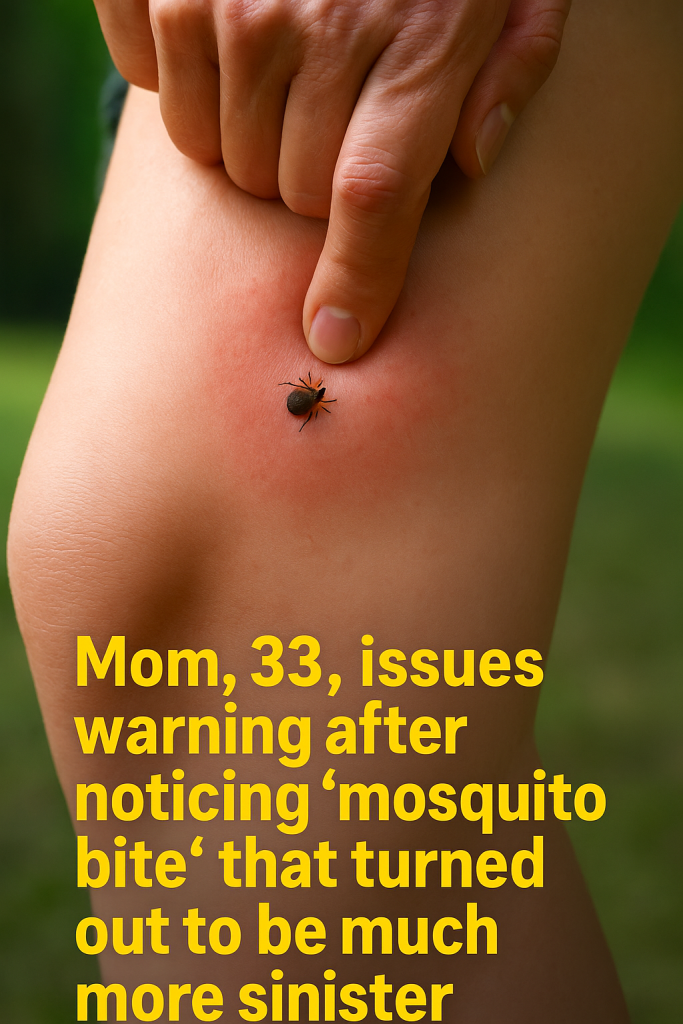A 33-year-old mother’s frightening experience after mistaking a dangerous tick bite for a harmless mosquito bite has become a crucial reminder about the hidden risks ticks pose — and why early detection matters.
Recently, a woman noticed what she initially believed was a simple mosquito bite on her arm. Like many might do, she paid it little attention. However, the bite soon worsened, developing unusual redness, swelling, and intense itching. Concerned, she sought medical advice only to discover it was a tick bite — not a mosquito bite — raising the possibility of serious tick-borne illnesses.
“At first, I thought it was just a mosquito bite like any other,” the mother explained. “But after a few days, the area became really painful and the rash started spreading. That’s when I knew something wasn’t right.”
Ticks, small arachnids adept at latching onto human skin, are often mistaken for mosquito bites or other minor skin irritations. Unlike mosquito bites, which typically cause a localized itchy bump, ticks can embed themselves deeply, sometimes unnoticed for days.
Experts warn this confusion can lead to delayed treatment, increasing the risk of contracting severe illnesses such as Lyme disease, Rocky Mountain spotted fever, or other tick-borne infections. Early removal of ticks and timely medical intervention are essential to reduce these dangers.
The mother’s case underscores a wider concern. With changing climate patterns and increased outdoor activities, tick populations have expanded, making encounters more common than ever. This trend means everyone—from parents to hikers—needs to remain vigilant.
Following her diagnosis, the woman underwent comprehensive testing for tick-borne diseases. Thankfully, intervention in the early stages helped prevent complications. She now actively shares her story on social media, urging others not to ignore suspicious bites or rashes.
Her key advice: “If you see a bite that looks like a mosquito bite but changes, gets bigger, or becomes painful, get it checked out. Don’t wait.”
Medical professionals recommend several precautions to reduce tick bite risks:
- Wear long sleeves and pants when venturing into grassy or wooded areas
- Use insect repellents containing DEET or permethrin-treated clothing
- Inspect skin and clothing thoroughly after outdoor exposure
- Remove ticks promptly with fine-tipped tweezers, grasping close to the skin and pulling straight upward
- Consult a healthcare provider promptly if a rash, fever, or unusual symptoms develop
The mother’s story is a stark reminder that what might seem like a minor annoyance can quickly turn serious. Ticks may be tiny, but the consequences of their bites should never be underestimated.
As awareness grows, community education on tick bite identification and prevention is critical, especially during warmer months when ticks are most active. This mother’s warning could potentially save lives by encouraging others to take even the smallest bite seriously.
Remember, vigilance is your best defense against tick-borne dangers lurking in the outdoors.



